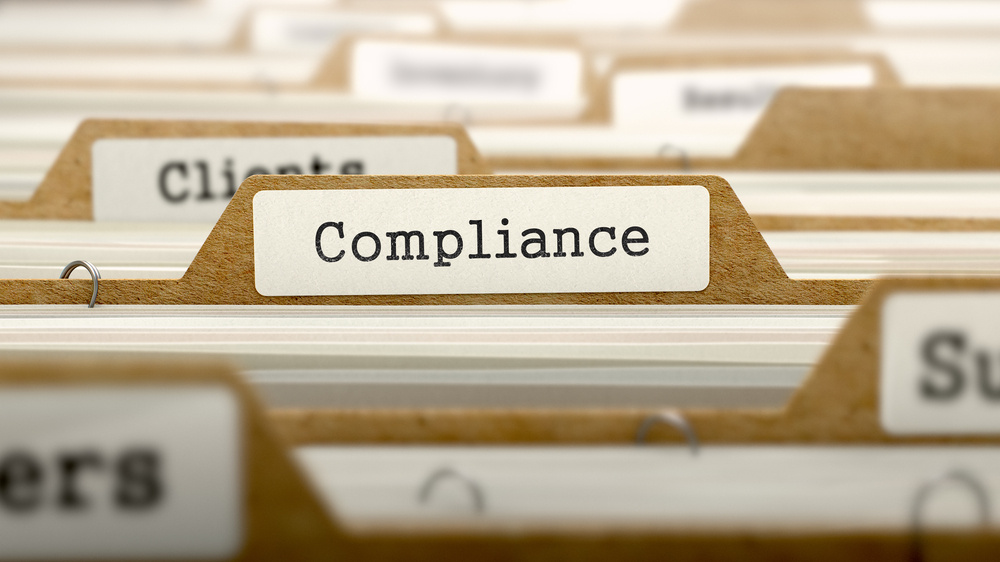Transforming Public Records Management for Government Efficiency
Table of contents
Public records management in government agencies is often a daunting and time-consuming task. With vast amounts of paper records and electronic records to handle, government officials face significant challenges in ensuring efficient, secure, and compliant records management. The reliance on paper-based processes not only slows down operations but also hinders public access to vital information.
Efficient management of government records is crucial for ensuring transparency, accountability, and improved service delivery. As public demand for better access to federal records grows, government agencies are increasingly pressured to modernize their records management practices. This article will explore how transforming public records management through digital solutions can streamline operations, reduce manual labor, and enhance overall service delivery in government settings.
Overcoming Common Challenges
Transitioning from paper-based records to a digital records management system presents several challenges, particularly in the government sector. Common obstacles include bureaucratic resistance, budget constraints, and concerns about data security.
-
Bureaucratic Resistance: Many government agencies are deeply rooted in traditional processes, making it difficult to adopt new technologies. To overcome this, it’s crucial to highlight the long-term benefits of digital transformation, such as improved efficiency and compliance. Encouraging a culture of change through training and demonstrating quick wins can help ease the transition.
-
Budget Constraints: While the initial investment in digital records management might seem daunting, the long-term savings are significant. Reducing physical storage costs, minimizing labor-intensive tasks, and preventing compliance penalties can offset the upfront costs. Government agencies can explore phased implementation strategies or seek funding through grants and partnerships to manage the financial burden.
-
Data Security Concerns: Protecting sensitive information is paramount in government records management. Digital solutions must be equipped with robust security measures to safeguard federal records and other critical data. Encryption, access controls, and regular audits are essential to ensure that government records managers can trust the integrity and confidentiality of their digital systems.
Integrating a digital records management system across various departments also requires careful planning to ensure compatibility and ease of use. Solutions like those offered by DocCapture can provide seamless integration, enabling different government departments to collaborate efficiently while maintaining strict compliance with regulations.
For more insights on how document scanning can address these challenges, check out our detailed guide on Government Document Scanning or explore related resources such as Document Scanning in Local Government.
Benefits of Transforming Public Records Management
Transforming public records management through digital solutions offers several key benefits for government agencies. These advantages not only improve day-to-day operations but also help meet broader goals related to compliance, transparency, and public service.
-
Increased Operational Efficiency: By replacing time-consuming manual processes with a digital records system, government agencies can drastically reduce the time and effort needed to manage paper records. This streamlining of operations allows staff to focus on more strategic tasks, ultimately improving the overall productivity of the agency. For instance, automated workflows can significantly speed up the handling of public records requests, leading to faster response times and better service delivery.
-
Enhanced Compliance with Regulations: Government agencies are required to adhere to strict regulations regarding the management of federal records and other sensitive documents. A modern records management system can help ensure that all records are stored, retrieved, and disposed of in compliance with relevant laws and standards. With digital records, agencies can maintain detailed audit trails, making it easier to demonstrate compliance during inspections or audits.
-
Better Service Delivery: By digitizing records, government agencies can make information more accessible to both internal stakeholders and the public. This ease of access is particularly important in responding to public records requests and providing citizens with the information they need. Improved access to government records also supports more informed decision-making within the agency, leading to more effective governance.
-
Cost Savings: Although the initial investment in a digital records management system may be significant, the long-term cost savings are considerable. By reducing the need for physical storage, minimizing manual labor, and avoiding compliance penalties, government agencies can achieve substantial financial benefits. Moreover, the use of machine learning and automation can further optimize operations, leading to additional cost reductions.
A case study from the national archives highlights the success of a federal agency that transitioned from paper-based to digital records. The agency reported a 50% reduction in processing time for public records requests and a 40% decrease in storage costs, demonstrating the tangible benefits of digital transformation.
To learn more about how digital transformation can improve government operations, explore our blog on Efficiency in Government: How Document Scanning Helps or Modernizing Government: The Role of Document Scanning.
The Need for Digital Transformation
Government agencies are under growing pressure to improve public access to federal records and other government records. The demand for transparency and accountability has never been higher, and the traditional paper-based methods of handling records are proving inadequate. Manual records management is not only inefficient but also prone to errors, which can result in delayed responses to public records requests and compliance risks.
Digitizing paper records and adopting a comprehensive records management system can significantly enhance the efficiency of government operations. By transitioning to digital records, agencies can streamline workflows, reduce the physical storage space required for paper records, and improve the accuracy and speed of information retrieval. Moreover, digital records are easier to share and access across departments, fostering better collaboration and decision-making within the government.
For more detailed insights into digitization's role in government, see our post on Document Scanning in Local Government.
With advancements in machine learning and data analytics, government agencies can now leverage technology to automate the classification, retrieval, and analysis of electronic records. This not only reduces the manual labor involved in records management but also enables agencies to meet compliance requirements more effectively. The shift towards digital solutions is no longer just an option—it’s a necessity for any government agency aiming to improve service delivery and maintain public trust.
Overcoming Common Challenges
Transitioning from paper-based records to a digital records management system presents several challenges, particularly in the government sector. Common obstacles include bureaucratic resistance, budget constraints, and concerns about data security.
-
Bureaucratic Resistance: Many government agencies are deeply rooted in traditional processes, making it difficult to adopt new technologies. To overcome this, it’s crucial to highlight the long-term benefits of digital transformation, such as improved efficiency and compliance. Encouraging a culture of change through training and demonstrating quick wins can help ease the transition.
-
Budget Constraints: While the initial investment in digital records management might seem daunting, the long-term savings are significant. Reducing physical storage costs, minimizing labor-intensive tasks, and preventing compliance penalties can offset the upfront costs. Government agencies can explore phased implementation strategies or seek funding through grants and partnerships to manage the financial burden.
Check out our comprehensive guide on Government Document Scanning to explore strategies for overcoming budget and integration challenges.
- Data Security Concerns: Protecting sensitive information is paramount in government records management. Digital solutions must be equipped with robust security measures to safeguard federal records and other critical data. Encryption, access controls, and regular audits are essential to ensure that government records managers can trust the integrity and confidentiality of their digital systems.
Integrating a digital records management system across various departments also requires careful planning to ensure compatibility and ease of use. Solutions like those offered by DocCapture can provide seamless integration, enabling different government departments to collaborate efficiently while maintaining strict compliance with regulations.
For more on how digitization can improve government efficiency, take a look at our article on Efficiency in Government: How Document Scanning Helps.
Benefits of Transforming Public Records Management
Transforming public records management through digital solutions offers several key benefits for government agencies. These advantages not only improve day-to-day operations but also help meet broader goals related to compliance, transparency, and public service.
-
Increased Operational Efficiency: By replacing time-consuming manual processes with a digital records system, government agencies can drastically reduce the time and effort needed to manage paper records. This streamlining of operations allows staff to focus on more strategic tasks, ultimately improving the overall productivity of the agency. For instance, automated workflows can significantly speed up the handling of public records requests, leading to faster response times and better service delivery.
-
Enhanced Compliance with Regulations: Government agencies are required to adhere to strict regulations regarding the management of federal records and other sensitive documents. A modern records management system can help ensure that all records are stored, retrieved, and disposed of in compliance with relevant laws and standards. With digital records, agencies can maintain detailed audit trails, making it easier to demonstrate compliance during inspections or audits.
Explore how digital transformation aids in compliance by reading Modernizing Government: The Role of Document Scanning.
-
Better Service Delivery: By digitizing records, government agencies can make information more accessible to both internal stakeholders and the public. This ease of access is particularly important in responding to public records requests and providing citizens with the information they need. Improved access to government records also supports more informed decision-making within the agency, leading to more effective governance.
-
Cost Savings: Although the initial investment in a digital records management system may be significant, the long-term cost savings are considerable. By reducing the need for physical storage, minimizing manual labor, and avoiding compliance penalties, government agencies can achieve substantial financial benefits. Moreover, the use of machine learning and automation can further optimize operations, leading to additional cost reductions.
For further reading on the cost benefits of digitizing government records, visit Government Departments and Document Imaging Services.
A case study from the national archives highlights the success of a federal agency that transitioned from paper-based to digital records. The agency reported a 50% reduction in processing time for public records requests and a 40% decrease in storage costs, demonstrating the tangible benefits of digital transformation.
Conclusion
Transforming public records management from a paper-based system to a digital one offers government agencies numerous benefits, including increased operational efficiency, enhanced compliance with regulations, and improved service delivery. By adopting a modern records management system, agencies can better meet the growing demands for transparency and accountability while also reducing costs and minimizing manual labor.
In today’s rapidly evolving digital landscape, it’s crucial for government officials, particularly those in IT and digital transformation roles, to consider the long-term advantages of digital records management. The success stories from agencies that have already made this transition underscore the importance of embracing digital solutions to improve overall governance and public service.
If you’re ready to explore how DocCapture can help your agency with efficient public records management, fill out our "Get a Quote" form to start the conversation today.
Share this
You May Also Like
These Related Stories

Addressing Privacy Concerns in Government Document Digitization

Enhancing Data Security in Government with Document Scanning

